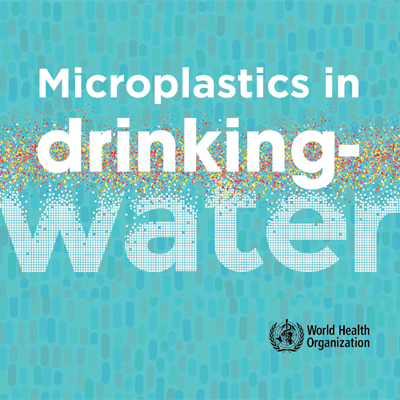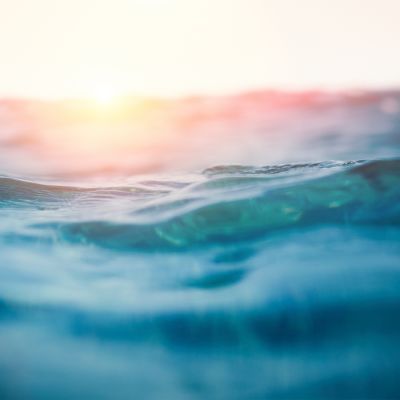Two Cranfield University academics are authors on the latest World Health Organization (WHO) report on microplastics in drinking water.
The WHO calls for a further assessment of microplastics in the environment and their potential impacts on human health, following the release of an analysis of current research related to microplastics in drinking water. The organisation also calls for a reduction in plastic pollution to benefit the environment and reduce human exposure.
“We urgently need to know more about the health impact of microplastics because they are everywhere - including in our drinking water,” says Dr Maria Neira, Director, Department of Public Health, Environment and Social Determinants of Health, at WHO. “Based on the limited information we have, microplastics in drinking water don’t appear to pose a health risk at current levels. But we need to find out more. We also need to stop the rise in plastic pollution worldwide.”
According to the analysis, which summarises the latest knowledge on microplastics in drinking water, microplastics larger than 150 micrometres are not likely to be absorbed in the human body and uptake of smaller particles is expected to be limited. Absorption and distribution of very small microplastic particles including in the nano size range may, however, be higher, although the data is extremely limited.
Further research is needed to obtain a more accurate assessment of exposure to microplastics and their potential impacts on human health. These include developing standard methods for measuring microplastic particles in water; more studies on the sources and occurrence of microplastics in fresh water; and the efficacy of different treatment processes.
Cranfield’s Peter Jarvis, Professor of Water Science & Technology and a lead author of the new report, said: “The report shows that there is an urgent need to fully understand the occurrence of microplastics throughout the water supply chain and carry out more research on water treatment to inform industry actions in the future.”
WHO recommends drinking water suppliers and regulators prioritise removing microbial pathogens and chemicals that are known risks to human health, such as those causing deadly diarrhoeal diseases. This has a double advantage: wastewater and drinking water treatment systems that treat faecal content and chemicals are also effective in removing microplastics.
Wastewater treatment can remove more than 90% of microplastics from wastewater, with the highest removal coming from tertiary treatment such as filtration. Conventional drinking water treatment can remove particles smaller than a micrometre. A significant proportion of the global population currently does not benefit from adequate water and sewage treatment. By addressing the problem of human exposure to faecally contaminated water, communities can simultaneously address the concern related to microplastics.
About Cranfield University
Cranfield University is a specialist postgraduate university that is a global leader for education and transformational research in technology and management.
Cranfield Water
Cranfield has over 40 years’ experience in the sector and we are recognised internationally for our work in the science, engineering and management of water. We work in all aspects of water – whether it is helping to ensure safe, clean supplies for domestic consumption, assessing agricultural needs for food production, protecting and enhancing natural habitats or improving process engineering for manufacturing and industry.
We have strategic partnerships with the Department for the Environment, Yorkshire Water, Severn Trent and Anglian Water.
Our activities are underpinned by world-class facilities, including a pilot-plant hall at the University’s own sewage treatment works, state-of-the-art soil and water laboratories, a grey water treatment pilot area, a managed borehole drilling site and soil and irrigation testing facilities.
We are a founding member of Water & Sanitation for the Urban Poor (WSUP); it is estimated that, to date, it has helped provide over one million people with clean drinking water, and some 400,000 with improved sanitation.
In 2015, we were awarded the Queen’s Anniversary Prize for our education and research into safe water and sanitation for the world's poorest communities.








